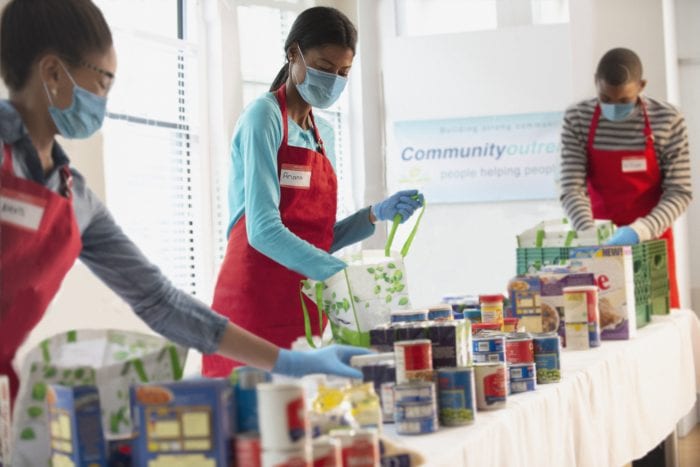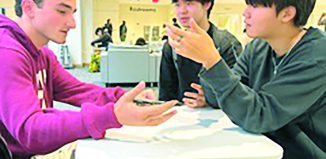Editorial: Need for Universal Empathy
We’re a small paper, really a small company, and just like so many small companies, the pandemic has done a number on us, except for an explosive growth on the internet. That’s how it is, and if you’re reading this, we cannot fully express how much we appreciate your support, even if it is just picking up this paper to read it.
It’s such a little thing, but knowing somebody is there holding our words in your hands is the reason we get up every morning to do this. To know we might be impacting somebody on a weekly basis is enough, or it should be enough.
We write about the small things. The small town government — towns, villages, school districts. We include the small donations to local nonprofits or our libraries, veterans groups, and on and on.
It’s easy to say we just report on what’s happening, that we exist to regurgitate the facts of what somebody said at a meeting, or give you statistics about who is running for what public office.
But more is needed. Humanity can’t subsist off of data points. Democracy can’t continue without somebody to put facts in context.
That is why we enjoy giving you profiles of people doing extraordinary things, from young people fresh out of college working on their own farm seven days a week to a financial adviser who supports the art community on the North Shore..
Because those stories do more than offer interest and escape from day-to-day drudgery, they offer something much deeper, a shared sense of empathy and community.
If we can break through the veil into each other’s lives, understand the hardships of other people, find that they have so much more in common than they don’t have in common, then that helps bridge divides, builds upon that universal sense that humanity itself is a sacred thing.
We cannot let partisanship craft our belief systems for us. Something that should be as universally understood as the need for the means for people to vote outside of polling places has become yet another red or blue issue. What does it matter if not what political aisle you shop for your beliefs, the end result should always be to at least attempt the betterment of the biggest number of people, and to add support for those who fall through the cracks like water drops through and open hand.
We cannot and should look at something like the COVID-19 pandemic without noticing how it disproportionately impacts people with fewer resources. Those with jobs in service industries, those that pay little and are staffed mostly by those of limited means, were much likelier to get the virus during the height of its spread through New York. It impacted communities of color such as Brentwood and Central Islip, whose school districts are largely Black and Latino, and had many more cases, even considering size, compared to our North Shore communities.
You can argue what is best for people, but really there is no mistaking empathy. Empathy is when local soup kitchens and food pantries along with many, many volunteers worked to feed people unable to provide for their family and themselves in the past few months.
Empathy is when a local volunteer animal rescuer takes away some abandoned roosters knowing the only other likely fate for the birds is to be hit by a car or eaten by a predator.
It’s not enough to know why these people do what they do. We must look at both them and at their shining hearts as well as the social reasons those things happen. That is what we do, and as we fight to keep reporting amidst a backdrop of decline for the entire newspaper industry, we hope that our readers will find that a communal sense of empathy is the best, and perhaps the only way to survive in times like these.







